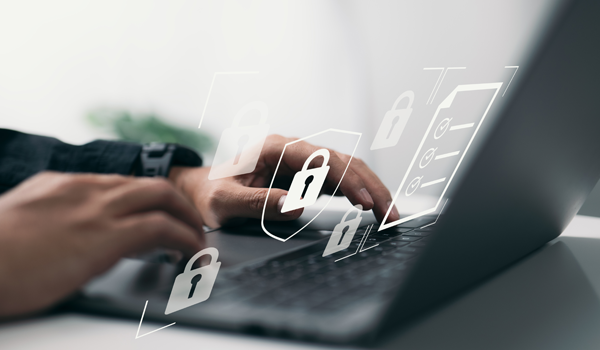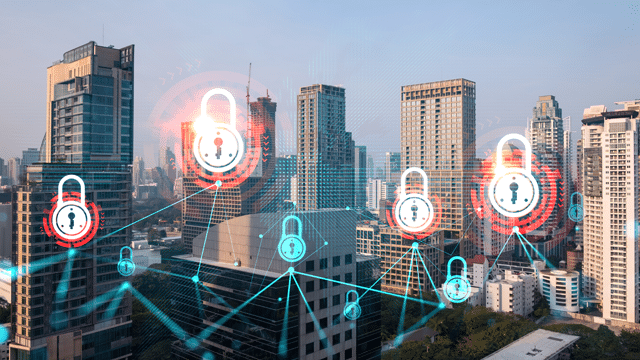Imagine a world where you can interact with anyone, anywhere, in a secure and trustworthy way, share your personal information confidently, know that it’s well-protected, and make transactions without fear of fraud. This is the world that Web3 promises, but it can only be achieved if we have a solid foundation of digital trust.
Why is Digital Trust important?
- Digital trust protects our personal information: In today’s digital world, we share a lot of personal data online, from our social media profiles to our credit card numbers. Digital trust helps to protect this information from unauthorized access, disclosure, disruption, modification, or destruction.
- Digital trust is essential for secure online transactions: When we make a purchase online, we need to be confident that our payment information is safe and that the goods or services we buy will be delivered to the correct location. Digital trust helps to build this confidence, making it possible for us to shop online safely and securely.
- Digital trust is essential for building confidence with other people online: When we interact with other people online, we need to be able to trust them. This is especially important when meeting new people or engaging in business transactions online. Digital trust helps us to assess the trustworthiness of others, making it possible for us to build meaningful relationships and collaborations.
How is Web3 changing the way we interact with the digital world?
Web3 is the next generation of the internet. It is a decentralized web that is built on blockchain technology. Web3 promises to give users more control over their data and online experiences. It also has the potential to revolutionize many industries, from finance to social media.
Why is digital trust so crucial in the era of Web3?
Digital trust is even more critical in the era of Web3. This is because Web3 is a decentralized web not controlled by any single entity. This means there is no central authority to ensure the security and reliability of the Web3 ecosystem.
As a result, it is more important than ever for individuals and businesses to protect themselves and their data in the era of Web3, including implementing robust security measures, being transparent about how data is collected and used, and respecting users’ privacy.
What are SSL certificates?
SSL certificates are digital certificates that provide encryption in the communication between a website and a user’s browser. This encryption helps to protect sensitive data, such as credit card information, from being intercepted by third parties. SSL certificates are also used to verify a website’s identity, which helps prevent phishing attacks.
SSL certificates play an essential role in securing Web3. By encrypting communication between websites and users’ browsers, SSL certificates help protect sensitive data from being intercepted by third parties. This is especially important in Web3, where users often interact with decentralized applications and smart contracts.
The importance of digital trust for individuals
- Protecting your personal information
:In Web3, individuals will have more control over their data. This means they can choose who they share their data with and how it is used. However, it also means that individuals will be responsible for protecting their data.
SSL certificates can help individuals to protect their personal information by encrypting communication between websites and users’ browsers. This helps to prevent third parties from intercepting sensitive data, such as financial information, credit card numbers, and passwords.
Individuals can also protect their personal information by being careful about what information they share online and who they share it with. They should also use strong passwords and two-factor authentication to protect their online accounts.
- Ensuring the security of your online transactions
:As Web3 becomes more mainstream, more people will make online transactions using cryptocurrencies and other digital assets. This is where IoT security comes into play. IoT security solutions can help individuals to protect their devices and networks from cyberattacks. Cyberattacks can steal cryptocurrencies and other digital assets, so taking steps to secure your devices and networks is essential.
In addition to using IoT security solutions, individuals can also protect the security of their online transactions by using strong passwords and two-factor authentication for their cryptocurrency wallets and other digital asset accounts. They should also be careful about which websites and exchanges they use to transact.
- Building trust with other people online: In Web3, individuals will be interacting with each other and with businesses in a more decentralized way. It will be more important than ever to be able to assess the trustworthiness of others. Identity and Access Management (IAM) solutions can help individuals do this by providing a way to verify other users’ identities. IAM solutions can also help individuals to control who has access to their data.
In addition to using IAM solutions, individuals can also build trust with others online by being transparent about their identities and intentions. They should also be careful about the information they share online and who they share it with.
The importance of digital trust for businesses
- Protecting your customers’ data:
Businesses in Web3 need to protect their customers’ data because customers will be entrusting companies with their personal data and digital assets. SSL certificates, IoT security, and IAM solutions can all help businesses to protect their customers’ data.
- SSL certificates encrypt communication between websites and users’ browsers, which helps to protect sensitive data, such as credit card numbers and passwords, from being intercepted by third parties.
- IoT security solutions protect devices and networks from cyberattacks because in web3, cyberattacks can still be used to steal data from businesses and their customers.
- IAM solutions help businesses to control who has access to their data and systems. IAM helps to prevent unauthorized access to customer data.
- Building trust with your customers and partners:
In Web3, businesses need to build trust with their customers and partners. With the current nature of Web3, customers, and partners will be more cautious about interacting with companies in a decentralized environment. SSL certificates, IoT security, and IAM solutions can all help businesses build trust with their customers and partners.
- SSL certificates demonstrate to customers and partners that a website is secure and their data will be protected.
- IoT security solutions show customers and partners that a business is taking steps to protect their data from cyberattacks.
- IAM solutions show customers and partners that a business has control over who has access to its data and systems.
- Complying with regulations
: Businesses in Web3 need to comply with regulations. Governments worldwide are
developing rules for the cryptocurrency and digital asset industry. SSL certificates, IoT security, and IAM solutions can all help businesses to comply with regulations.- Many regulations require SSL certificates to protect customer data.
- IoT security solutions can help businesses comply with regulations that require them to protect their devices and networks from cyberattacks.
- IAM solutions can help businesses comply with regulations that require them to control who has access to their data and systems.
Examples
- A Web3 company that sells NFTs could use an IAM solution to verify its customers’ identities before they can purchase an NFT. This would help to prevent fraud and protect customers from phishing attacks.
- A Web3 company that offers a decentralized financial service could use an IoT security solution to protect its devices and networks from cyberattacks to help ensure the security of its customers’ funds.
- A Web3 company that stores its customers’ data on the blockchain could use an SSL certificate to encrypt the data in transit. SSL would help to protect the data from being intercepted by third parties.
- Overall, digital trust is essential for the success of Web3. Individuals and businesses can create a more secure, reliable, and trustworthy digital world by building and maintaining digital trust.
How to build and maintain digital trust
- Implementing security and privacy measures
: One of the most essential things individuals and businesses can do to build and maintain digital trust is to implement security and privacy measures. These measures should protect sensitive data from unauthorized access, use, disclosure, disruption, modification, or destruction. Some examples of security and privacy measures include:
-
- Using strong passwords and two-factor authentication
- Keeping software up to date
- Using firewalls and antivirus software
- Encrypting sensitive data
- Having a privacy policy in place
SSL certificates can help to protect private data by encrypting communication between websites and users’ browsers to prevent third parties from intercepting and manipulating personal data, like credit card numbers and passwords.
IoT security solutions can help protect devices and networks from cyberattacks since cyberattackers can better steal data from individuals and businesses as web3 progresses.
IAM/CIAM solutions can protect data by controlling who has access to it. IAM/CIAM solutions can also help to verify the identities of users. -
- Being transparent about how you collect and use data: Another important thing that individuals and businesses can do to build and maintain digital trust is to be transparent about how they collect and use data. This includes having a clear privacy policy that explains what data is collected, how it is used, and with whom it is shared.
- Respecting the privacy of your users : Individuals and businesses should also respect the privacy of their users. This means only collecting and using data necessary for a specific purpose. It also means giving users control over their data and allowing them to opt out of data collection and use.
- Ensuring that your systems and services are reliable and available : Individuals and businesses should also ensure that their systems and services are reliable and functional, such as planning to prevent and recover from quickly occurring outages.
- Being accountable for your actions and responding to incidents quickly and effectively: Finally, individuals and businesses should be accountable for their actions and respond to incidents quickly and effectively. Taking responsibility for data breaches and other security incidents and taking necessary steps to prevent future incidents from happening is the key to a safer web3.
Examples:
- A Web3 company that sells NFTs could use an IAM/CIAM solution to control who has access to its NFT marketplace. This would help to prevent unauthorized users from accessing and stealing NFTs.
- A Web3 company that offers a decentralized financial service could use an SSL certificate to encrypt communication between its website and its users’ browsers to protect users’ sensitive data from being intercepted by third parties.
- A Web3 company that stores its customers’ data on the blockchain could use an IoT security solution to protect its servers from cyberattacks. This would ensure the security of its customers’ data interacting in the blockchain.
The challenges of building and maintaining digital trust in the era of Web3
- The decentralized nature of Web3: One of the challenges of building and maintaining digital trust in the era of Web3 is the decentralized nature of Web3. In Web3, no central authority can be held accountable for security and privacy. Individuals and businesses must take the initiative to protect themselves and their data.
- The increasing sophistication of cyberattacks: Another challenge in Web3 is the increasing sophistication of cyberattacks. Cybercriminals are continuously developing new ways to hack individuals and businesses. Web3 users must stay current on the latest security threats and implement the necessary security measures more bravely than before.
- The growing complexity of the digital landscape: The growing complexity of the digital landscape is another challenge. There are now more devices and applications than ever before. This makes tracking all the potential security risks that can infiltrate individual and professional networks challenging.
Conclusion
Digital trust is essential for the success of Web3. Individuals and businesses can create a more secure, reliable, and trustworthy digital world by building and maintaining digital trust.
There are several things that individuals and businesses can do to build and maintain digital trust, including:
- Implementing security and privacy measures
- Being transparent about how you collect and use data
- Respecting the privacy of your users
- Ensuring that your systems and services are reliable and available
- Being accountable for your actions and responding to incidents quickly and effectively
Despite the challenges of building and maintaining digital trust in the era of Web3, it is essential for the success of this new and exciting technology. By following the tips above, individuals and businesses can help to create a better future for all.
To learn more about digital trust and how to build and maintain it, please visit our website at Acmetek.com. We offer below digital security solutions that can help you protect your data and build trust with your customers and partners.
- SSL certificates
- IoT security
- Identity and Access Management (IAM)
- Customer Identity and Access Management (CIAM)







